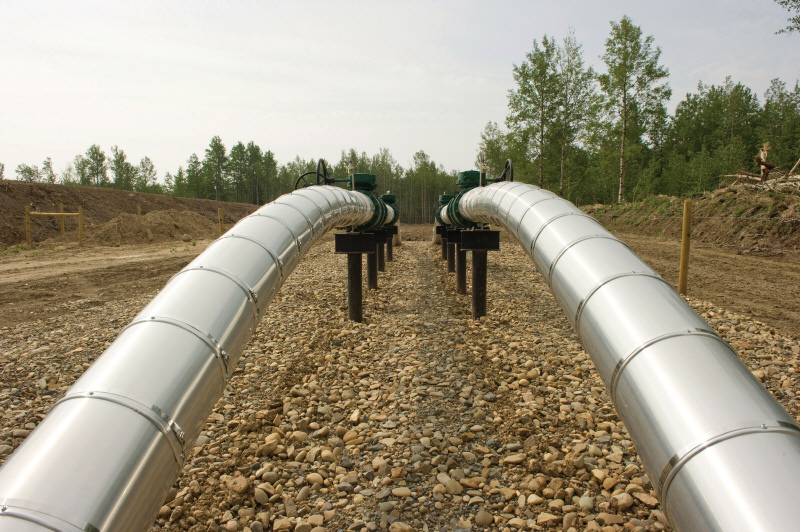
(Photo: Shell)
CALGARY A study commissioned by TransCanada Corp. shows ontario and Quebec among the biggest economic winners from construction of its proposed Energy East pipeline, though company CEO Russ Girling admits it will take more than rosy numbers to win public support for the $12-billion project.
The report by Deloitte & Touche LLP, released Tuesday by TransCanada, predicts some 10,071 direct full-time equivalent jobs across the country will be needed to develop and build Energy East until 2018. Of that, Quebec represents 36 per cent and ontario 23 per cent.
once the pipeline is up and running, Deloitte sees the creation of some 1,081 direct jobs, at which point Alberta will start to see a bigger share of direct employment.
The study also found the project would add about $35.3 billion to Canadas gross domestic product in the development and construction phase and over the 40-year life of the project. As well, its expected to add $10.2 billion in tax revenues at the municipal, provincial and federal levels the over that time.
The premiers of Alberta and New Brunswick are staunch supporters of the project, but its not known whether other provinces notably Quebec will embrace it.
Therell be other issues with respect to the routing of our pipeline, impacts on landowners and other stakeholder issues that were going to need to understand and manage our way through, Girling told reporters from Fredericton.
And those other issues, along with the economic benefits, I think will play into the support that we garner or dont for this project.
RELATED: Irving Oil to build new terminal for Energy East pipeline project
The 4,500-kilometre Energy East pipeline would connect up to 1.1 million barrels per day of western crude to refineries and export terminals in Quebec and New Brunswick. The proposal involves converting a portion of TransCanadas underused natural gas mainline to oil service and building 1,400 kilometres of new pipe from west of Montreal to Saint John, N.B.
The economic figures dont include the impact of higher Canadian crude prices that would result from being able to sell the product in lucrative overseas markets. Nor does it incorporate the lower crude costs eastern refineries may enjoy, said Deloittes Trevor Nakka, one of the studys authors.
In this context, the study is conservative in nature, Nakka told reporters. It doesnt seek to extend the boundary or scope of economic impacts. The economic impacts are estimated to be only those related to the project itself.
ontario is expected to see a boost of nearly $2.7 billion to its gross domestic product during construction and $10.3 billion over the pipelines operation. Nakka said the big increase during the operations phase is mainly due to the large amount of electricity the 30 pump stations in the province will use.
Deloitte sees about $3.1 billion being added to Quebecs GDP during construction and more than $3.2 billion during operation.
The economic benefits to Alberta, though relatively modest initially, are expected to pick up significantly once the pipeline is operational. It is seen having a $1.7-billion boost to GDP over the next six years and then a $6.1-billion boost over the subsequent 40 years.
New Brunswick home to the countrys largest oil refinery is expected to see its GDP rise by nearly $1.2 billion during development and construction and by $1.6 billion during operations.
Meanwhile, TransCanada is seeking approval from the U.S. State Department to build its controversial $5.4-billion Keystone XL pipeline, which would enable oilsands crude to flow to U.S. markets.
In touting the benefits of that proposal, TransCanada has said it expects 13,000 jobs to be created, but those figures have been questioned by many critics. Even U.S. President Barack Obama has said he expects the jobs created by Keystone XL to be a fraction of what TransCanada is projecting.
Theres certain folks that are firmly opposed to the development of our pipelines and I think have purposefully tried to confuse the job numbers, said Girling.
What were trying to do here is be as transparent as possible in terms of the communication of the job numbers. Our objective here is not to confuse anybody. Its to be as transparent as possible.
Given the diverging views of Keystone XLs economic impact, Greenpeace Canadas Keith Stewart said the latest Energy East figures should be viewed with a skeptical eye.
But more broadly, Stewart said its a question of the kind of economy Canadians want to build.
We would create more jobs and build a better economy if we spent $12 billion on public transit and greener vehicles that reduce our oil consumption, rather than on building a pipeline that fuels climate change by deepening the worlds addiction to dirty oil, Stewart said.
Environmental Defences Adam Scott said there are other economic impacts to consider when weighing pipelines like Energy East, such as their role in enabling oilsands development the fastest growing source of global warming pollution in Canada.
The economic impacts of a warming climate were felt in Alberta and ontario in the form of unprecedented flooding this summer, Scott said.
Cleanup costs from Calgarys flooding exceeded $3 billion dollars while costs of cleaning up Torontos flooding are estimated at $850 million.
Federal Natural Resources Minister Joe Oliver welcomed the Deloitte report.
Pipelines moving oil from the west to the east would be among the most expansive and ambitious stretches of energy infrastructure in the world, and would contribute to the energy security of Canada and all of North America, he said.
Replacing higher-cost foreign crude with lower-cost Canadian crude for refineries in Quebec and Atlantic Canada would protect and increase job opportunities in the refinery sector and ensure a competitive fuel supply for consumers.




